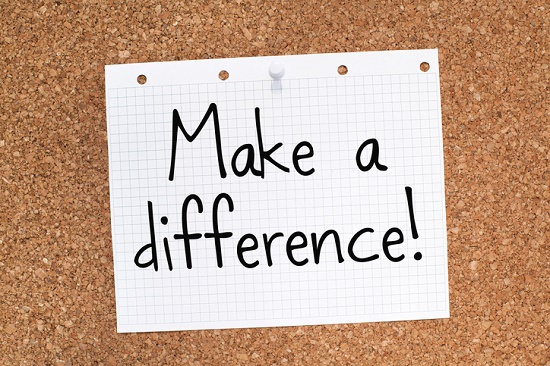
If you already use hearing aids, you’ve already beat the odds.
In the United States, around 48 million people have hearing loss, of which 28.8 million could benefit from utilizing hearing aids.
However, of those age 70 and older, only 30 percent of those who could benefit from hearing aids actually use them. For those age 20 to 69, it’s merely 16 percent.
That’s literally millions of Americans that are missing out on the advantages of healthier hearing—advantages you understand first-hand if you use hearing aids yourself or know someone who does.
So what can you do to raise awareness about the positive effects of hearing aids and the improvements to the quality of life they supply?
The following are 10 ways to become a hearing health advocate.
1. Discuss hearing loss on social media
Social media is a simple and efficient way to spread the message regarding the benefits of healthier hearing. Let people know how hearing aids work, and how they’ve personally enhanced your life or the life of someone you know.
Although people are generally skeptical of advertising, they’ll always be receptive to personal stories.
2. Volunteer to help those in need
Participate in a local event like the Hearing Loss Association of America’s Walk4Hearing event, or host your own to boost awareness or funds for hearing loss.
Get in contact with your local hearing loss chapter and find ways you can assist in the community. Check out the Hearing Loss Association of America to find a local chapter.
3. Donate your old hearing aids
If you’re set to upgrade your hearing aids to a newer model, consider donating your old hearing aids to a local organization or hearing clinic.
Your donated hearing aids can be reconditioned and provided to those who couldn’t otherwise afford them.
4. Contribute to hearing health organizations
Consider donating to an organization that provides support the deaf and hard-of-hearing community, such as the Hearing Health Foundation, Hearing Charities of America, or a local institution.
These institutions use the contributions to finance research, to provide education and support, and to supply financial help to those who can’t afford hearing aids or cochlear implants.
5. Start a petition
Most states do not require health insurance plans to cover the expense of hearing aids. Start a petition to deliver to your elected representatives, asking them to recognize hearing health as a critical aspect of overall health.
6. Help someone overcome hearing loss
Many people accept as true the misconception that hearing aids don’t work, or they may even be denying they have a problem in the first place.
Help people to accept their hearing loss and understand that the technological advancements in hearing aids can help them reclaim their hearing. Help guide them through the steps of finding a hearing care provider, getting their hearing tested, and adapting to their hearing aids.
7. Advocate for the community
Hearing loop systems supply sound directly from the source to the individual’s hearing aids. These can be found in churches, movie theaters, auditoriums, and universities.
Advocate for the introduction of hearing loop systems in the most popular community locations.
8. Use hearing protection
One of the best ways to advocate for hearing health is by being a hearing health role model. That means protecting your hearing at very loud venues, like at rock concerts or sporting events, with custom hearing protection.
9. Get your hearing evaluated
If you don’t already wear hearing aids, prove your commitment to hearing health by having your hearing tested. Share the process on social media and suggests that other people do the same.
10. Proudly wear your hearing aids
Last, you can do your part to get rid of the stigma of hearing loss by proudly wearing your hearing aids. Hearing loss is widespread, just like vision loss, and wearing hearing aids should be as typical and acceptable as wearing a pair of prescription glasses.